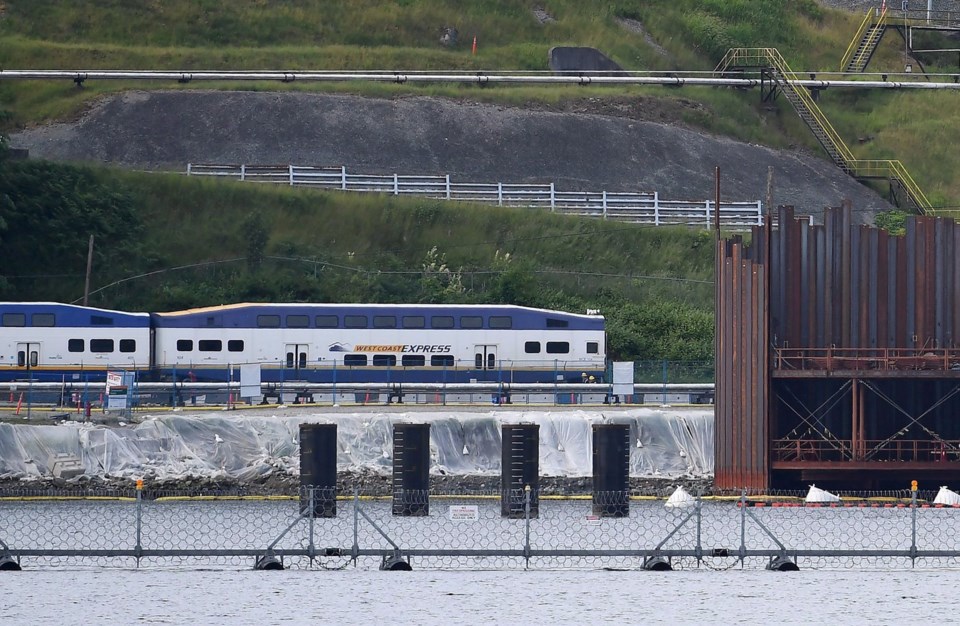British Columbia grain producers are closely watching developments in the nationwide railway dispute triggered on Wednesday night, saying its impacts could soon spread beyond farmers to producers of food and beer.
Canadian National Railway Co. trains have begun rolling again, but it's unclear when freight movements will fully resume after workers issued a strike notice and pushed back against efforts by the federal government to get them back on the job.
Operations remained shuttered Friday at Canadian Pacific Kansas City Ltd., halting B.C.'s West Coast Express commuter service that runs on CPKC tracks.
Hannah Willms, a director of the BC Grain Producers Association in the Peace River region, said the stoppage was causing problems for farmers like her who rely on trains to get their barley from Fort St. John, B.C., to the market each week.
Compared to trains, she said trucks don’t have enough capacity. One train is able to carry as much grain as 300 double-length Super-B trucks, and there's "no way" to get that many on the road, Willms said in an interview.
Premier David Eby said the impacts of a long-term stoppage would be "devastating."
"The Port of Prince Rupert, for example, so many families dependent on work there, dramatically impacted by this shutdown. The port of the City of Vancouver, the same kind of thing, and then all the little businesses that depend on being able to move their goods in and out of those ports and across the country using railway."
Eby encouraged the rail companies and the workers to sit down and "hammer this out," and said federal officials should "support clarity on this as quickly as they can."
Willms, who has been farming with her husband for 30 years, said a lack of cash flow would soon put a strain on farmers who wait for harvest before getting paid.
"We have gone all summer without income, and so we get to harvest and we start shipping our grain, that's when we get our income," she said.
If farmers can't move their grain, Willms said it will create problems for other food sectors.
"And pretty soon the beer is not going to be flowing — we supply barley for beer."
Commuters in B.C. have also been feeling the impact of the first-ever simultaneous work stoppage on Canada's two major railways.
The West Coast Express remained halted for a second day Friday, with transit provider TransLink saying it can't restart until CPKC gives the green light.
The commuter train between Vancouver and Mission, B.C., has been unable to operate without locked-out CPKC rail traffic controllers.
The labour dispute has affected more than 30,000 commuters in Toronto, Montreal and B.C., including the 3,000 who use the West Coast Express each weekday.
The stoppage at both railways prompted Ottawa to ask the Canada Industrial Relations Board on Thursday to use binding arbitration to resolve the impasse.
The tribunal has said it is addressing the issue "with utmost urgency" and a decision was expected later Friday.
Eby said he understands "why workers are angry."
"They're saying we shouldn't be working when we're too fatigued to make good safety decisions for Canadians," the premier said during an unrelated news conference on Friday. "They're saying we need to support our families at a time of rising costs, and then they find themselves locked out by an employer."
Eby urged the companies in particular to "step up and protect Canadians."
"They have monopolies. They have key corridors that were paid for by all Canadians, and they shouldn't be allowed to use those to hold Canadians hostage instead of sitting down with their workers, talking about safety, wages and other vital things."
— By Nono Shen and Brenna Owen in Vancouver
This report by The Canadian Press was first published Aug. 23, 2024.
The Canadian Press

